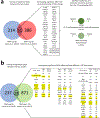Sleep and memory: The impact of sleep deprivation on transcription, translational control, and protein synthesis in the brain
- PMID: 36802068
- PMCID: PMC10919414
- DOI: 10.1111/jnc.15787
Sleep and memory: The impact of sleep deprivation on transcription, translational control, and protein synthesis in the brain
Abstract
In countries around the world, sleep deprivation represents a widespread problem affecting school-age children, teenagers, and adults. Acute sleep deprivation and more chronic sleep restriction adversely affect individual health, impairing memory and cognitive performance as well as increasing the risk and progression of numerous diseases. In mammals, the hippocampus and hippocampus-dependent memory are vulnerable to the effects of acute sleep deprivation. Sleep deprivation induces changes in molecular signaling, gene expression and may cause changes in dendritic structure in neurons. Genome wide studies have shown that acute sleep deprivation alters gene transcription, although the pool of genes affected varies between brain regions. More recently, advances in research have drawn attention to differences in gene regulation between the level of the transcriptome compared with the pool of mRNA associated with ribosomes for protein translation following sleep deprivation. Thus, in addition to transcriptional changes, sleep deprivation also affects downstream processes to alter protein translation. In this review, we focus on the multiple levels through which acute sleep deprivation impacts gene regulation, highlighting potential post-transcriptional and translational processes that may be affected by sleep deprivation. Understanding the multiple levels of gene regulation impacted by sleep deprivation is essential for future development of therapeutics that may mitigate the effects of sleep loss.
Keywords: gene expression; hippocampus; memory; ribosome; sleep deprivation; translation.
© 2023 The Authors. Journal of Neurochemistry published by John Wiley & Sons Ltd on behalf of International Society for Neurochemistry.
Figures




References
-
- Acosta-Pena E, Camacho-Abrego I, Melgarejo-Gutierrez M, Flores G, Drucker-Colin R and Garcia-Garcia F. (2015) Sleep deprivation induces differential morphological changes in the hippocampus and prefrontal cortex in young and old rats. Synapse 69, 15–25. - PubMed
-
- Adams R, Appleton S, Taylor A, McEvoy D, Antic N. (2016) 2016 Sleep Health Survey of Australian Adults. Sleep Health Foundation.
-
- Aguiar AS Jr., Speck AE, Prediger RD, Kapczinski F. and Pinho RA (2008) Downhill training upregulates mice hippocampal and striatal brain-derived neurotrophic factor levels. J Neural Transm (Vienna) 115, 1251–1255. - PubMed
Publication types
MeSH terms
Grants and funding
LinkOut - more resources
Full Text Sources

